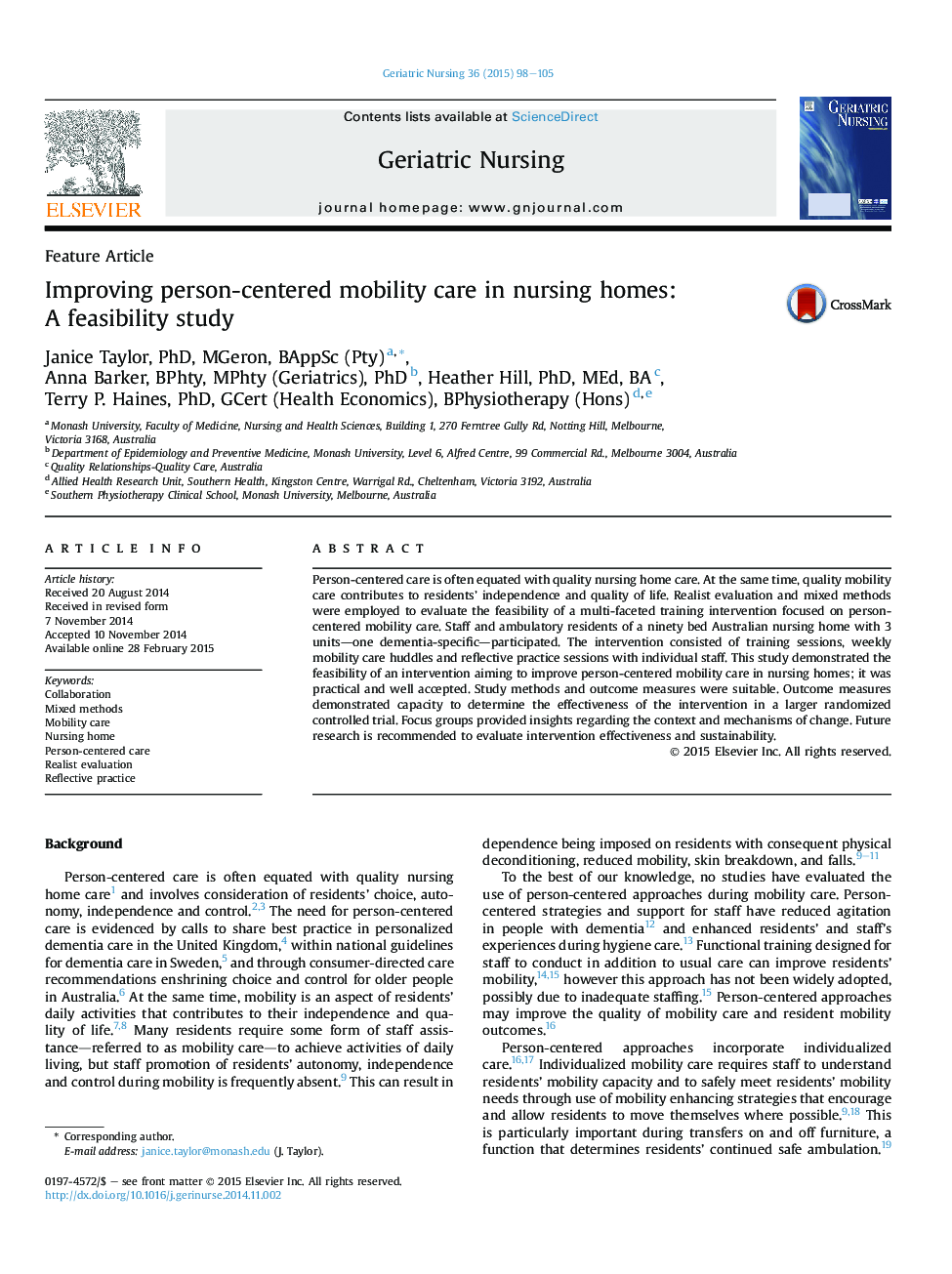| Article ID | Journal | Published Year | Pages | File Type |
|---|---|---|---|---|
| 5868550 | Geriatric Nursing | 2015 | 8 Pages |
â¢An intervention to train staff in person-centered mobility care is feasible.â¢Realist evaluation provided information helpful in determining study feasibility.â¢Collaborative approaches to training appear to improve staff's mobility care.â¢Reflective practice and huddles are innovative approaches to improving mobility care.
Person-centered care is often equated with quality nursing home care. At the same time, quality mobility care contributes to residents' independence and quality of life. Realist evaluation and mixed methods were employed to evaluate the feasibility of a multi-faceted training intervention focused on person-centered mobility care. Staff and ambulatory residents of a ninety bed Australian nursing home with 3 units-one dementia-specific-participated. The intervention consisted of training sessions, weekly mobility care huddles and reflective practice sessions with individual staff. This study demonstrated the feasibility of an intervention aiming to improve person-centered mobility care in nursing homes; it was practical and well accepted. Study methods and outcome measures were suitable. Outcome measures demonstrated capacity to determine the effectiveness of the intervention in a larger randomized controlled trial. Focus groups provided insights regarding the context and mechanisms of change. Future research is recommended to evaluate intervention effectiveness and sustainability.
